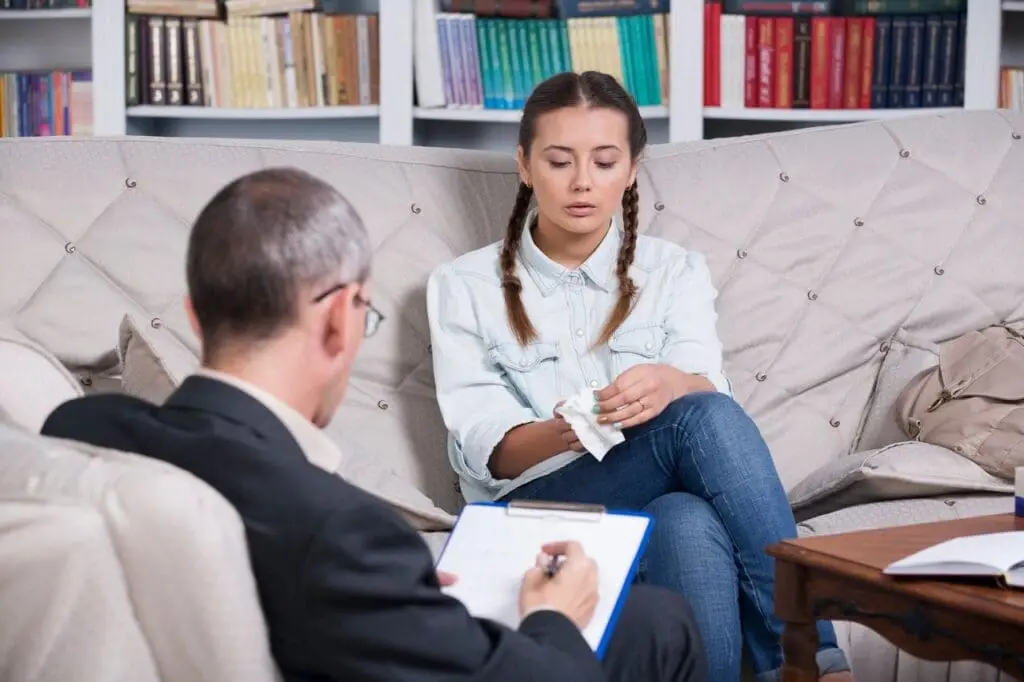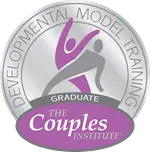Are you feeling stuck in your love life? Do you face recurring conflicts and challenges that seem impossible to overcome? Well, you’re not alone. Many individuals struggle to navigate the complex dynamics of their relationships, and that’s where individual relationship counseling comes in. In this fast-paced and ever-evolving world, it’s easy to lose sight of our own needs and desires, leading to dissatisfaction and frustration in our romantic partnerships. But fear not because individual relationship counseling holds the key to unlocking the power within you to transform your love life. By working one-on-one with a skilled and compassionate counselor, you can gain valuable insights into your own patterns and behaviors, identify and address deep-rooted issues, and develop effective strategies for nurturing healthy and fulfilling relationships. So, if you’re ready to embark on a journey of self-discovery and personal growth, let’s dive into the world of individual relationship counseling and discover how it can revolutionize your love life.
Understanding Individual Relationship Counseling
Individual relationship counseling, also known as individual therapy or counseling, is a form of therapy focused on helping individuals navigate their relationships. Unlike couples therapy, which involves both partners attending sessions together, individual relationship counseling focuses solely on the individual’s experiences, emotions, and patterns within their relationships.
During individual relationship counseling, you can expect to work closely with a trained therapist who specializes in relationship dynamics. This therapist will provide a safe and non-judgmental space for you to explore your thoughts, feelings, and experiences related to your romantic partnerships. They will help you gain a deeper understanding of yourself, your needs, and your relationship patterns.
The Benefits of Individual Relationship Counseling
Individual relationship counseling offers numerous benefits for those seeking to improve their love lives. Firstly, it provides an opportunity for self-reflection and self-discovery. Through guided conversations and therapeutic techniques, you can uncover underlying issues, gain insights into your own behaviors and patterns, and identify any barriers that may be hindering your relationship success.
Secondly, individual relationship counseling allows for personalized attention and tailored strategies. Unlike couples therapy, where the focus is on the dynamics between both partners, individual therapy hones in on your specific needs and concerns. This individualized approach enables the therapist to provide targeted guidance and support, helping you develop effective strategies for overcoming challenges and fostering healthier relationships.
Lastly, individual relationship counseling promotes personal growth and empowerment. By exploring and addressing your own patterns and behaviors, you can break free from negative cycles and create positive change in your love life. Through therapy, you can gain the tools and skills necessary to communicate effectively, set boundaries, and cultivate emotional intimacy.
Common Issues Addressed in Individual Relationship Counseling
Individual relationship counseling can address a wide range of issues that individuals may face in their romantic relationships. Some common issues include:
1. Communication problems: Difficulty expressing needs, ineffective communication styles, and misunderstandings can all contribute to conflicts in relationships. Individual relationship counseling can help you develop better communication skills and learn how to express yourself in a healthy and constructive manner.
2. Trust issues: Trust is the foundation of any successful relationship. If you’ve experienced betrayal or have difficulty trusting others, individual therapy can help you explore the underlying causes and work towards rebuilding trust.
3. Intimacy and connection: Many individuals struggle with intimacy and creating deep connections in their relationships. Through counseling, you can explore any barriers that may be preventing you from forming intimate connections and learn how to foster emotional closeness.
4. Self-esteem and self-worth: Low self-esteem and a lack of self-worth can negatively impact relationships. Individual relationship counseling can help you build self-confidence, develop a positive self-image, and learn to value yourself within a relationship.
5. Past traumas and unresolved issues: Past traumas and unresolved issues can significantly impact your ability to form healthy relationships. A therapist can help you process and heal from these experiences, allowing you to move forward and create healthier relationship dynamics.
How Individual Relationship Counseling Differs from Couples Therapy
Individual relationship counseling and couples therapy are two distinct forms of therapy, each with its own focus and goals. While couples therapy involves both partners attending sessions together, individual relationship counseling focuses solely on the individual’s experiences and needs within the relationship.
Individual relationship counseling allows for a deep exploration of one’s own patterns, emotions, and behaviors, without the presence or influence of the partner. This allows individuals to gain insights into their own contributions to relationship dynamics and develop strategies for personal growth.
Couples therapy, on the other hand, focuses on the interactions and dynamics between both partners. It aims to improve communication, resolve conflicts, and strengthen the bond between the couple. Couples therapy often involves joint sessions, where both partners work together with the therapist to address shared concerns and goals.
While both approaches have their benefits, individual relationship counseling offers a unique opportunity for self-reflection, personal growth, and individualized attention.
Finding the Right Therapist for Individual Relationship Counseling
Finding the right therapist for individual relationship counseling is crucial for a successful therapeutic journey. Here are a few tips to help you find the right fit:
1. Look for specialization: Seek out therapists who specialize in relationship counseling or have experience working with individuals on relationship issues. They will have the expertise and knowledge necessary to guide you through your unique challenges.
2. Consider their approach: Different therapists have different therapeutic approaches. Research and consider which approach aligns with your needs and preferences. Some common approaches include cognitive-behavioral therapy, psychodynamic therapy, and emotionally-focused therapy.
3. Read reviews and testimonials: Take the time to read reviews and testimonials from previous clients. This can give you valuable insights into the therapist’s style, effectiveness, and ability to create a supportive and safe therapeutic environment.
4. Trust your instincts: Trust your gut feeling when choosing a therapist. It’s important to feel comfortable and supported during therapy sessions. If you don’t feel a connection or sense of trust with a therapist, it’s okay to explore other options.
Remember, finding the right therapist may take time and effort, but it’s an essential step towards transforming your love life.
What to Expect in Individual Relationship Counseling Sessions
Individual relationship counseling sessions typically follow a structured format, while still allowing flexibility for personalized exploration. Here’s what you can expect:
1. Assessment: In the initial sessions, your therapist will gather information about your relationship history, current challenges, and goals. This assessment phase helps the therapist understand your unique circumstances and tailor the therapy accordingly.
2. Goal setting: Together with your therapist, you will identify specific goals and outcomes you hope to achieve through therapy. These goals will serve as a guide throughout your therapeutic journey.
3. Exploration and reflection: Through conversations and therapeutic techniques, you will explore your thoughts, feelings, and experiences related to your relationships. Your therapist will ask probing questions, offer insights, and help you gain a deeper understanding of yourself.
4. Skill-building and strategies: Your therapist will provide you with tools, techniques, and strategies to address specific challenges and improve your relationship dynamics. These may include effective communication skills, conflict resolution strategies, and self-care practices.
5. Progress tracking and feedback: Throughout the therapy process, your therapist will regularly check in on your progress, provide feedback, and make adjustments as needed. This ensures that therapy remains on track and aligned with your goals.
Remember, individual relationship counseling is a collaborative process, and your active participation is key to its success. Be open and honest with your therapist, and don’t hesitate to ask questions or seek clarification when needed.
Techniques and Tools Used in Individual Relationship Counseling
Individual relationship counseling draws upon a variety of therapeutic techniques and tools to help individuals navigate their relationship challenges. Some common techniques include:
1. Cognitive-behavioral therapy (CBT): CBT focuses on identifying and changing negative thoughts and behaviors. It helps individuals challenge unhelpful beliefs, develop healthier thinking patterns, and adopt more effective behaviors within their relationships.
2. Emotionally-focused therapy (EFT): EFT focuses on understanding and addressing the underlying emotions that drive relationship dynamics. It helps individuals and couples create a secure emotional bond, increasing relationship satisfaction.
3. Mindfulness and meditation: Mindfulness practices can help individuals cultivate self-awareness, manage stress, and improve emotional regulation. By incorporating mindfulness and meditation techniques, individuals can develop a greater sense of presence and intentionality within their relationships.
4. Narrative therapy: Narrative therapy focuses on reframing and rewriting one’s personal story. It helps individuals explore their narratives about themselves and their relationships, empowering them to create more positive and empowering narratives.
5. Solution-focused therapy: Solution-focused therapy focuses on identifying and amplifying strengths and resources within individuals. It helps individuals recognize their own resilience and develop practical solutions to relationship challenges.
These are just a few examples of the many techniques and tools that therapists may use in individual relationship counseling. Your therapist will tailor the approach based on your unique needs and goals.
Tips for Maintaining Healthy Relationships After Individual Relationship Counseling
Individual relationship counseling is just the beginning of your journey towards a healthier love life. Here are a few tips to help you maintain healthy relationships long after therapy:
1. Practice self-awareness: Continue to reflect on your thoughts, feelings, and behaviors within your relationships. Stay attuned to your needs and communicate them effectively to your partner.
2. Nurture emotional intimacy: Cultivate emotional closeness and connection with your partner. Foster open and honest communication, active listening, and empathy.
3. Prioritize self-care: Take care of your own well-being by engaging in self-care practices. This includes setting boundaries, practicing self-compassion, and engaging in activities that bring you joy and fulfillment.
4. Continue learning and growing: Relationships are constantly evolving, and it’s essential to continue learning and growing together. Seek out relationship resources, attend workshops or seminars, and never stop investing in your personal growth.
5. Seek support when needed: If challenges arise in your relationship, don’t hesitate to seek support from a therapist or counselor. Individual relationship counseling can be a valuable resource for maintaining a healthy and thriving partnership.
Remember, maintaining a healthy relationship requires ongoing effort and commitment from both partners. With continued self-reflection, effective communication, and a willingness to grow, you can create a love life that is nourishing and fulfilling.
Conclusion
Individual relationship counseling is a powerful tool for transforming your love life. By working one-on-one with a skilled therapist, you can gain valuable insights into your own patterns and behaviors, address deep-rooted issues, and develop effective strategies for nurturing healthy and fulfilling relationships. Through individual relationship counseling, you can embark on a journey of self-discovery and personal growth, creating a love life that is joyful, harmonious, and deeply satisfying. So, take the first step towards unlocking the power within you and revolutionizing your love life through individual relationship counseling.







